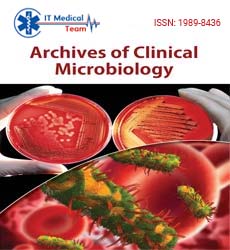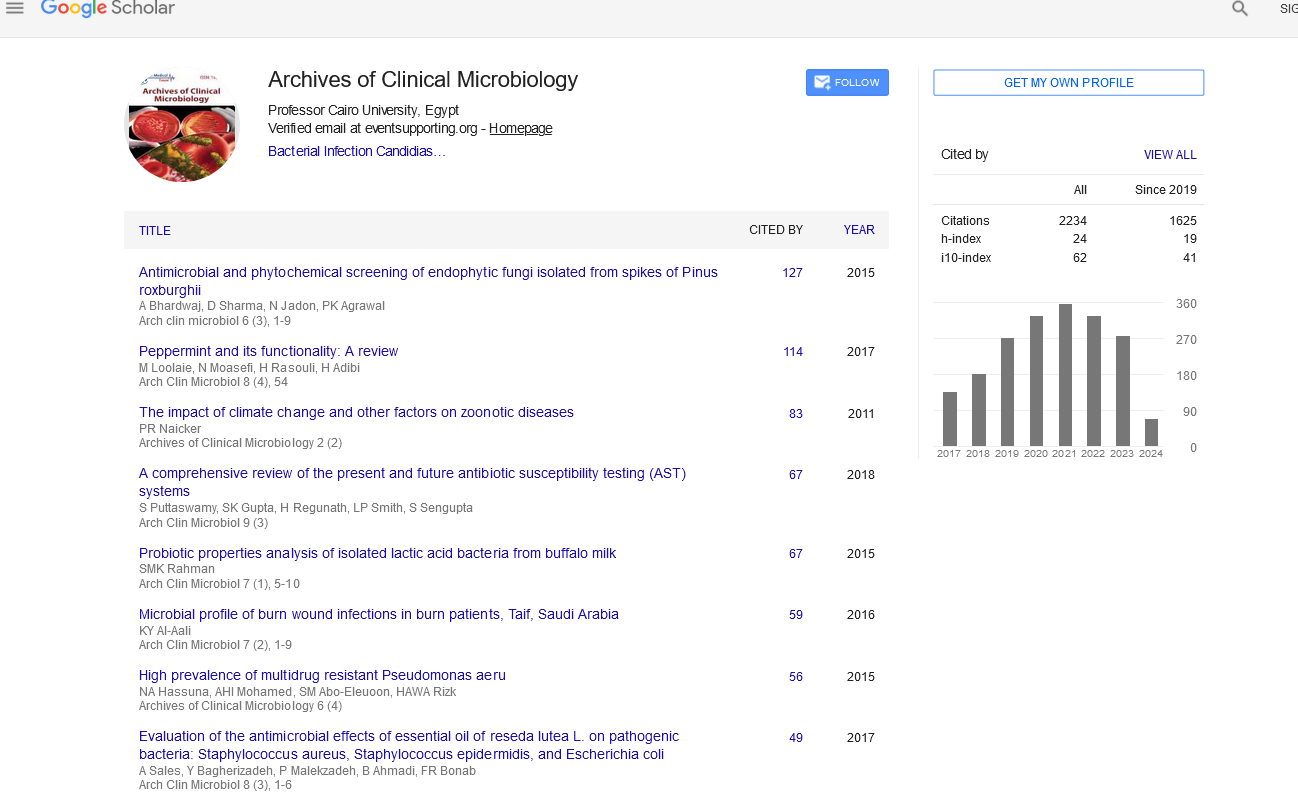Suying Ding*, Qian Qin and
Ang Li
Department of Health Management Center, First Affiliated Hospital of Zhengzhou University
Zhengzhou, Henan, China
- *Corresponding Author:
- Ding S
Department of Health Management Center,
First Affiliated Hospital of Zhengzhou University
Zhengzhou, Henan, China
E-mail: fccdingsy@zzu.edu.cn
Received: August 11, 2021; Accepted: August 25, 2021; Published: September 01, 2021
Citation: Ding S, et al. (2021) Smoking, Inflammation and Gut Microbiota. Arch Clin
Microbio Vol.12 No.S4: 166.
Always population-based study the effect of smoking on intestinal flora, found that smokers have diversity than non-smokers, an increase in the abundance of pathogenic or opportunistic pathogens and a decrease in the abundance of beneficial bacteria. However, the research for population screening is not rigorous; there may be bias of disease and living habit, etc. In our study, people with chronic diseases and sub-health were excluded, and personal lifestyle information was collected to explore the effects of smoking on intestinal microflora in healthy people, and to eliminate the bias in exercise and diet.
Description
Always population-based study the effect of smoking on intestinal
flora, found that smokers have diversity than non-smokers,
an increase in the abundance of pathogenic or opportunistic
pathogens and a decrease in the abundance of beneficial bacteria.
However, the research for population screening is not rigorous;
there may be bias of disease and living habit, etc. In our study,
people with chronic diseases and sub-health were excluded, and
personal lifestyle information was collected to explore the effects
of smoking on intestinal microflora in healthy people, and to
eliminate the bias in exercise and diet.
By comparing the diversity between the two groups, this study
found that the diversity of smokers was higher than that of nonsmokers,
which is contrary to previous studies. We hypothesized
that the previous decrease in diversity may be related to chronic
diseases in the enrolled population. Studies have shown that
chronic diseases (diabetes, hypertension, etc.) can reduce
the diversity of intestinal flora, the increase of diversity may
be caused by the increase of the abundance of pathogenic
bacteria or opportunistic pathogens. Using metagenomic
sequencing, we found that the changes at the species level in
the smoking group were concentrated in a few key functional
bacteria, Ruminococcus gnavus, Bacteroides vulgatus,
Faecalibacterium prausnitzii, and Akkermansia muciniphila,
which were identified as being associated with the severity of
inflammation. Ruminococcus gnavus contains specific genes that encode superantigens to induce and bind IgA antibody in vivo.
Bacteroides vulgatus produces LPS, which activates T cells and
promotes immune cells to produce cytokines such as IL-6, IL-8,
and TNF-α. Faecalibacterium prausnitzii inhibits inflammation
by producing MAM to inhibit NF-κB activation in the intestinal
microbiome. Akkermansia muciniphila secretes the peptide,
Amuc_1100, which interacts with Toll-like receptor 2, improves
the gut barrier and decreases inflammation. What the current
studies have in common is that the changes in gut microbiota
caused by smoking are like those found in diseases such as IBD
and obesity, suggesting that the mechanism by which smoking
increases inflammation in the body is common to both IBD and
obesity.
Further functional examination showed that the smoking
group had a higher concentration of pathways responsible for amino acid biosynthesis. Our hypothesis is that accumulation
of amino acids, the basic structures of proteins, may be due to
the increased demand for amino acids caused by changes in the
bacterial abundances due to smoking, thereby increasing the
amino acid abundances.
For the discovery and interpretation of microbial biomarkers,
changes in the intestinal microbiome can also be analyzed
by Linear Discriminant Analysis effect Size (LEfSe), which will
emphasize statistical significance and biological correlation. LEfSe
can identify not only the differences of rich bacteria, but also the
differences of non-rich bacteria. This shows the statistical science
of our study.
Our study has outstanding advantages. Firstly, the population
is all from healthy people, which avoids the impact of disease.
Secondly, we used metagenomes to define the differential flora
at the species level. Thirdly, we analyzed the influence of lifestyle
and other factors on the microflora, and determined that smoking
was the main factor driving the change of microflora. Finally, we
clearly found that smoking causes an increase in inflammation,
possibly through changes in the microbiome.
Conclusion
In conclusion, our study provides new insights. However, the
accuracy of microbiome assessments is still limited. We need
a more comprehensive understanding of the overall structure
and composition of the gut microbiome and the mechanisms of
action of key functional bacteria.
39675





